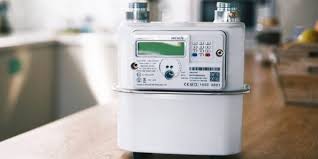
UK plan to roll out smart meters by 2020 will not be met


The NAO said the cost increase is a conservative estimate as it does not include the potential cost of replacing less technologically advanced SMETS1 meters. Nor does it factor in costs that will be incurred if energy suppliers do not bring installation costs down from where they were at in 2017, the watchdog said.
Significant technical delays meant the first wave of second-generation smart meters (SMESTS2) only occurred in July 2017, more than three years later than initially planned. In their absence, energy suppliers have installed 12 million first-generation smart meters (SMETS1), more than the 5.4 million planned by the UK Department for Business, Energy and Industrial Strategy (BEIS).
Because the SMETS2 rollout was significantly delayed, sticking to the 2020 deadline is putting increasing pressure on the program's timetable, increasing the risk of cost escalation and/or technology being rolled out before defects have been addressed, NAO said in a report Friday.
"The rollout of this many SMETS1 meters was the unintended consequence of the BEIS aiming to install smart meters quickly," the NAO report said. "The BEIS decided on this strategy without making an economic assessment of its implications. It says rolling out SMETS1 meters has allowed consumers to experience the benefits of smart metering early. However, most of the benefits enabled by smart meters will be realized in the long term, and so did not require an urgent rollout."
In 2016, the BEIS put the cost of the program at GBP11 billion and estimated it would bring economic benefits of GBP16.7 billion. The costs are equivalent to GBP374 per dual fuel household (in total, rather than annually).
"It is currently uncertain whether all of the industry cost savings forecast by the BEIS will materialize," the NAO said, in part because of the extra 7.1 million SMETS1 meters that have been rolled out.


Newmont nets $100M payment related Akyem mine sale

First Quantum scores $1B streaming deal with Royal Gold

Caterpillar sees US tariff hit of up to $1.5 billion this year

Gold price rebounds nearly 2% on US payrolls data

Copper price collapses by 20% as US excludes refined metal from tariffs

St Augustine PFS confirms ‘world-class’ potential of Kingking project with $4.2B value

B2Gold gets Mali nod to start underground mining at Fekola

Goldman told clients to go long copper a day before price plunge

Copper price posts second weekly drop after Trump’s tariff surprise

Codelco seeks restart at Chilean copper mine after collapse

US slaps tariffs on 1-kg, 100-oz gold bars: Financial Times

BHP, Vale offer $1.4 billion settlement in UK lawsuit over Brazil dam disaster, FT reports

NextSource soars on Mitsubishi Chemical offtake deal

Copper price slips as unwinding of tariff trade boosts LME stockpiles

SAIL Bhilai Steel relies on Danieli proprietary technology to expand plate mill portfolio to higher steel grades

Alba Discloses its Financial Results for the Second Quarter and H1 of 2025

Australia weighs price floor for critical minerals, boosting rare earth miners

Australia pledges $87M to rescue Trafigura’s Nyrstar smelters in critical minerals push

Fresnillo lifts gold forecast on strong first-half surge

US slaps tariffs on 1-kg, 100-oz gold bars: Financial Times

BHP, Vale offer $1.4 billion settlement in UK lawsuit over Brazil dam disaster, FT reports

NextSource soars on Mitsubishi Chemical offtake deal

Copper price slips as unwinding of tariff trade boosts LME stockpiles

SAIL Bhilai Steel relies on Danieli proprietary technology to expand plate mill portfolio to higher steel grades

Alba Discloses its Financial Results for the Second Quarter and H1 of 2025

Australia weighs price floor for critical minerals, boosting rare earth miners

Australia pledges $87M to rescue Trafigura’s Nyrstar smelters in critical minerals push

Fresnillo lifts gold forecast on strong first-half surge














